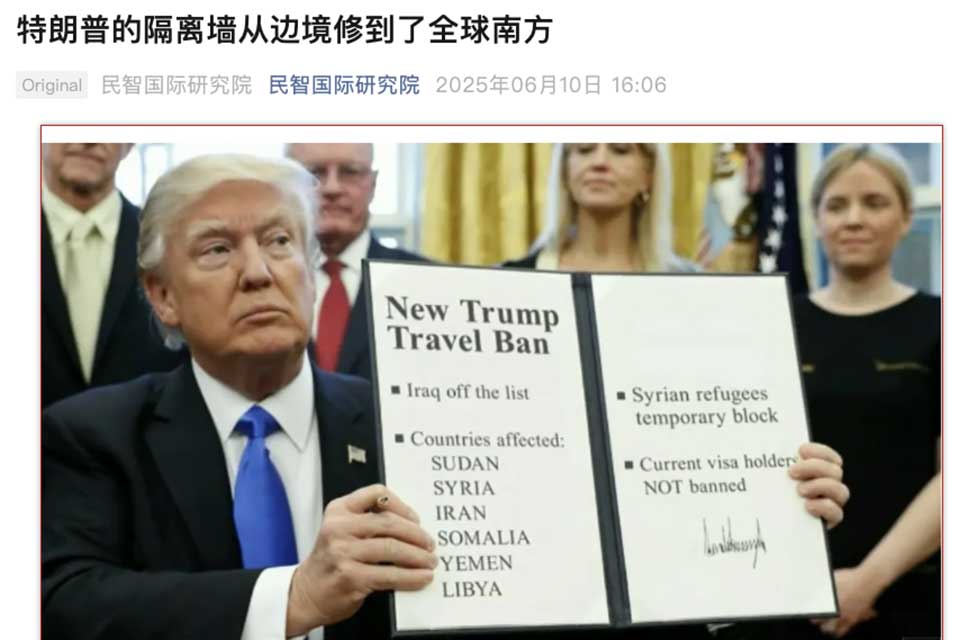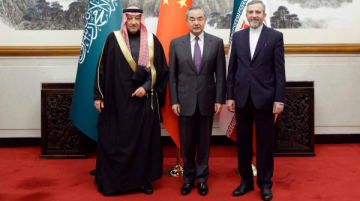
At the start of this month, Donald Trump signed a sweeping travel ban blocking entry to citizens from 12 countries, reviving and expanding a controversial policy first rolled out during his earlier term. But what lies behind this relentless targeting of certain nations?
A recent article published by the Chinese globalization-focused D&C Think-Tank, titled “Trump’s Border Wall Now Reaches the Global South”, delves into the logic—and the politics—behind the president’s latest executive order.
Officially justified by national security concerns, the ban singles out countries including Afghanistan, Myanmar, Chad, Congo-Brazzaville, Equatorial Guinea, Eritrea, Haiti, Iran, Libya, Somalia, Sudan, and Yemen. The White House claims these nations pose elevated risks due to poor visa compliance, weak information-sharing mechanisms, and ineffective identity screening systems.
However, the article argues that the rationale is less about real-time threats and more about symbolic performance: drawing new lines of exclusion in a world already fragmented by geopolitical divides. The analysis identifies three driving factors behind the renewed list:
- Authoritarian African States: The seven African countries on the list—such as Eritrea, Chad, and Equatorial Guinea—have limited visa issuance but high visa overstay rates. The U.S. cites poor governance, human rights abuses, and security risks—accusing some of crimes against humanity—to justify restrictions.
- Geopolitical hostility: Afghanistan, Iran, and Yemen face U.S. sanctions due to tense diplomatic relations and ongoing conflicts. Iran’s nuclear program and missile tests, Taliban control in Afghanistan, and Yemen’s Houthi insurgency raise security concerns linked to terrorism and regional instability.
- Fragile States with Weak Cooperation: Haiti and Myanmar suffer from political chaos, internal violence, and poor border control. Both lack transparent cooperation with the U.S., contributing to migration pressures and complicating identity verification, though direct terrorism links are unclear.
The think tank also highlights the internal consequences of Trump’s hardline approach, pointing to military-style immigration raids in Los Angeles, direct confrontations between federal forces and local officials, and growing civil unrest that casts a shadow over America’s democratic image abroad.
Far from being a routine security measure, the ban is portrayed as a calculated extension of Trump’s populist platform—one that treats migration not as a humanitarian or economic issue, but as a battlefield for national identity. As the article notes, this broad-stroke approach risks undermining America’s standing as an immigrant nation, cutting off paths for legitimate asylum seekers while deepening global inequalities.








